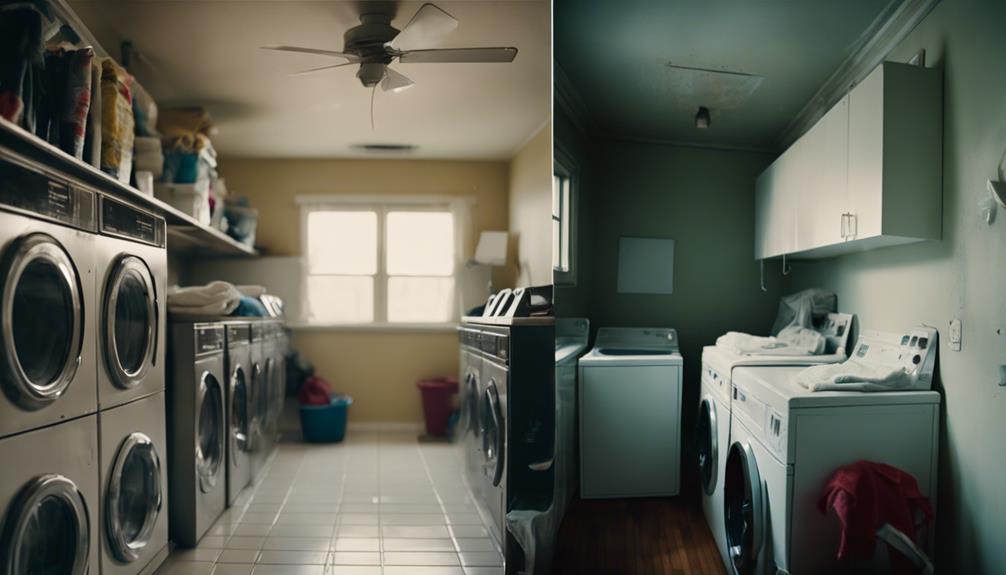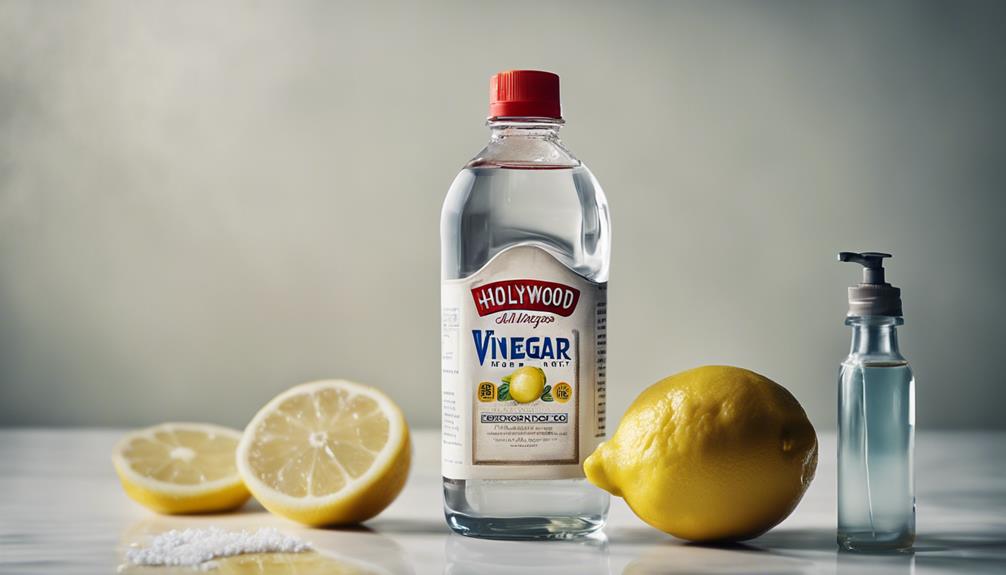You can start using cleaning vinegar in your laundry by adding it to your wash routine. Vinegar acts as a natural fabric softener, removes tough odors, and whitens clothes without harsh chemicals. To use vinegar, add it to the fabric softener dispenser or the final rinse cycle. You can also soak white clothes in vinegar and hot water to whiten them. Just remember to avoid mixing vinegar with bleach or ammonia, and skip using it on elastic clothing to prevent damage. By incorporating vinegar into your laundry routine, you'll be on your way to fresh, clean clothes – and there's more to discover about its benefits.
Benefits of Vinegar in Laundry
Using vinegar in your laundry routine can be a game-changer, offering a multitude of benefits that will leave your clothes feeling, smelling, and looking their best.
One of the significant benefits of vinegar in laundry is its ability to act as a natural fabric softener, leaving your clothes feeling soft and fresh. It also helps remove tough odors from clothes, keeping them smelling clean and fresh.
Vinegar is also effective in removing stubborn stains, making it an excellent addition to your stain removal arsenal. Additionally, it helps prevent color fading in clothing, maintaining the vibrancy of your colored garments.
As a bleach-free whitening agent, vinegar is perfect for restoring brightness to your white clothes without exposing them to harsh chemicals. By incorporating vinegar into your laundry routine, you can enjoy these benefits and more, all while using a natural and gentle cleaner.
With its numerous benefits, vinegar is a simple yet effective way to elevate your laundry experience.
Using Vinegar in Washing Machines
To get the most out of vinegar's laundry benefits, you'll want to incorporate it strategically into your washing machine routine. Here are some ways to use cleaning vinegar in your washing machines:
- Natural Fabric Softener: Add 1/4 to 1/2 cup of cleaning vinegar to the fabric softener dispenser for a natural fabric softening effect.
- Remove Odors and Residue: Use cleaning vinegar to remove odors and detergent residue by adding it to the final rinse cycle.
- Whiten and Brighten: Soak white clothing in a mixture of cleaning vinegar and hot water to whiten and brighten fabrics.
- Clean Your Washing Machine: Run a cycle with 1 cup of cleaning vinegar to eliminate buildup and maintain efficiency.
Remember to avoid using cleaning vinegar on elastic clothing items to prevent damage to the fabric.
Vinegar Dos and Don'ts

As you start incorporating cleaning vinegar into your laundry routine, it's important to know the dos and don'ts to get the most out of its benefits while avoiding any potential drawbacks. By following these guidelines, you'll be able to reap the rewards of using cleaning vinegar in your laundry.
Do use cleaning vinegar to remove tough odors from your clothes by adding it to the rinse cycle for a fresh scent. You can also soak white cotton items in a mixture of cleaning vinegar and detergent to whiten them effectively. Additionally, adding cleaning vinegar to your laundry routine can help soften fabrics, deodorize clothes, and remove detergent buildup in an eco-friendly way.
On the other hand, there are some things you should avoid doing. Don't mix cleaning vinegar with bleach or ammonia, as this can cause harmful chemical reactions. You should also avoid using cleaning vinegar on elastic clothing, like workout gear or underwear, as it can damage the elastic fibers.
Tips for Effective Vinegar Use
When you add cleaning vinegar to your laundry routine, you'll achieve the best results by following a few simple guidelines.
To guarantee effective vinegar use, keep the following tips in mind:
- Measure correctly: Add 1/4 to 1/2 cup of cleaning vinegar to the rinse cycle to eliminate odors from clothes effectively.
- Whiten and brighten: Soak white garments in a mixture of cleaning vinegar and detergent to whiten and brighten them.
- Use as a fabric softener: Utilize cleaning vinegar as a fabric softener to soften fabrics, deodorize clothes, and remove detergent buildup.
- Avoid elastic clothing: Refrain from using cleaning vinegar on elastic clothing to prevent damage to the fibers, and limit its use to an as-needed basis to prevent damaging washing machine components.
Vinegar Alternatives and More

You can turn to vinegar alternatives like baking soda and oxygen bleach for effective stain removal, whitening, and odor elimination in your laundry. If you're looking for alternatives to using vinegar, oxygen bleach is a great option for removing tough stains and odors. Baking soda can also act as a bleach alternative, neutralize odors, and brighten whites in your laundry.
Consider using laundry detergent specifically designed for fabric care as an alternative to vinegar. Swash laundry detergent offers a convenient and effective alternative to vinegar for cleaning clothes and maintaining fabric quality.
When using vinegar to clean, it's essential to remember that it may not be suitable for delicate fabrics. In such cases, these alternatives can be a better option. The benefits of using vinegar in laundry are undeniable, but it's nice to have options.
Adding vinegar to your wash can be effective, but it's not the only way to achieve effective cleaning. By exploring these alternatives, you can find the best solution for your laundry needs.
Conclusion
You've just discovered the secret to revolutionizing your laundry game – and it's all thanks to the mighty cleaning vinegar! From banishing odors to brightening whites, this miracle worker will transform your clothes from meh to mesmerizing.
Your wallet (and the environment) will thank you, too! With these simple tips, you'll be hooked on the vinegar laundry life – and never look back!